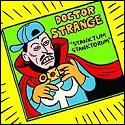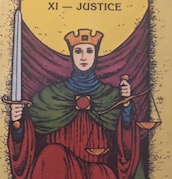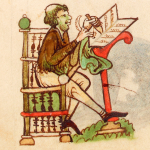|
For the longest time I thought they were two different houses, since I'd hear about the Hapsburgs in reference to their holdings in Spain and western Europe and Habsburgs when people were talking about farther east. Okay I still don't really understand it. Grand Prize Winner posted:How much power did the medieval Roman emperors have, anyway? Were they absolute monarchs or did the senatorial class (were they still called senators after the senate was abolished?) have some kind of check, formal or informal, on imperial authority? Another reason we should stop calling them the Byzantines: I thought you were talking about the HRE when I first read this. Byzantine-Roman Emperors had absolute power just like all the Roman emperors since Diocletian. At least in theory; the period is famous for backstabbing, treachery and insubordinate generals for a reason.
|
|
|
|

|
| # ? May 23, 2024 11:49 |
|
Generally it's a good thing to avoid altering Latin spellings that don't have any special letters because it doesn't really make any sense whatsoever to do so and will just cause confusion.
|
|
|
|
Grand Prize Winner posted:How much power did the medieval Roman emperors have, anyway? Were they absolute monarchs or did the senatorial class (were they still called senators after the senate was abolished?) have some kind of check, formal or informal, on imperial authority? Like most things, it depended on the emperor. They kept a senate around until almost the end of the empire, most of the time they were ignored, but weak emperors might rely on them to handle those boring administrative functions. The senate forced Empress Irene to resign, and provided Empress Zoe with two of her four husbands. Other emperors, like Phocas or Justinian II or Basil "the Bulgar-Slayer" (once he grew up and John Tzimtzes was deposed) could basically run the whole show, for better or worse. At least until the military revolted or whatever. And of course powerful landowners/governors could ignore the imperial writ when it suited them, as Romanos IV found out the hard way at Manzikert.
|
|
|
|
Tao Jones posted:The Russian Tsar Ivan III had married a Paleologue woman, and so after the fall of Constantinople to the Turks, when there weren't any male Palelogues around anymore, Ivan pressed the claim that the title was his. That was a notion that was supported by some Orthodox clergymen. At the same time, the Hapsburgs claimed the Holy Roman Empire was the heir of Rome, through descent from the Carolingians. It was mostly an academic question, though, since the Ottomans held Constantinople and never lost it. What's your source for Ivan III pressing his claim? I was always under the impression that the idea of Third Rome wasn't taken very seriously at all in Russia. Also, Ivan III was never tsar. Ivan IV (the terrible) first claimed that title in 1547.
|
|
|
|
Besesoth posted:I apologize; I think was unclear. I think that your major point is correct - that it's wrong to not continue to call the empire out of Constantinople the Roman Empire, especially since that's literally what they called themselves. But I think you're going about it the wrong way; the "when did the transition happen?" question is a red herring if what you mean is "there wasn't an actual transition". Offering alternative transitive points isn't going to convince anyone of anything other than that you believe there was a transition!
|
|
|
|
brozozo posted:What's your source for Ivan III pressing his claim? I was always under the impression that the idea of Third Rome wasn't taken very seriously at all in Russia. Wikipedia's article on Third Rome says, "By rules of inheritance followed by most European monarchies of the time Ivan could claim that he and his offspring were heirs of the fallen Empire, but the Roman traditions of the empire had never recognized automatic inheritance of the Imperial office." and cites that as coming from Nicol, Donald MacGillivray, Last Centuries of Byzantium, 1261-1453, Cambridge University Press, Second Edition, 1993, p. 72. On reading the sentence again, "could claim" is ambiguous as to whether or not he actually did. I don't know much about Russia, as evidenced by the fact that I mixed up Grand Prince of Moscow with Tsar in general.
|
|
|
|
This is getting into "what if" territory but was there ever a chance for the Western Empire to recover? Say Majorian doesn't get screwed over in his attempt to kick the Vandals out of Africa or alternately doesn't get dicked over/assassinated by Ricimer would that have given any chance of a recovery or would anything that could've possible "saved" it have just been a band-aid on a gunshot wound?
|
|
|
|
Can anyone talk about divination using entrails? What were the signs that they were looking for when poking around a chicken liver?
|
|
|
|
I think it was the size/relative size of the lobes of the organs, how clean they were, the colour, firmness and texture. Presumably a healthy organ meant Zeus/Jupiter was pleased. Beyond that, I don't know if anyone knows anymore.
|
|
|
|
Suben posted:This is getting into "what if" territory but was there ever a chance for the Western Empire to recover? Say Majorian doesn't get screwed over in his attempt to kick the Vandals out of Africa or alternately doesn't get dicked over/assassinated by Ricimer would that have given any chance of a recovery or would anything that could've possible "saved" it have just been a band-aid on a gunshot wound? I believe the Western Empire could have recovered, yes - transformed still, with the aristocracy becoming a mixture of Roman and Romanised Germanics - similar to, say, the conquest of Northern China by various Steppe Nomads that eventually assimilated into Chinese society, and it would have taken a long while of recovery for the central government to become able to actually exercise full authority over local potentates, but it is plausible that Western Rome could have survived.
|
|
|
|
Suben posted:This is getting into "what if" territory but was there ever a chance for the Western Empire to recover? Say Majorian doesn't get screwed over in his attempt to kick the Vandals out of Africa or alternately doesn't get dicked over/assassinated by Ricimer would that have given any chance of a recovery or would anything that could've possible "saved" it have just been a band-aid on a gunshot wound? The Vandals being kicked out would have been a major positive for the Empire, and given back one of its key strengths, having a protected and safe grain supply far away from any marauding tribes or what have you. Territory in Gaul would have probably still been lost, at least temporarily, as the still crippled Empire licked its wounds and turtled behind the Alps and the Pyrenees. Everything may have played out similarly, or it may have been the shot in the arm the Empire needed to keep surviving long enough to adjust to the changed world.
|
|
|
|
Frankly  just absorbing the Germans like they did everyone else rather than turning into giant racist assholes probably would've been fine. It couldn't have hurt, at least. just absorbing the Germans like they did everyone else rather than turning into giant racist assholes probably would've been fine. It couldn't have hurt, at least.
|
|
|
|
Namarrgon posted:My friend makes the claim that the Osman conquest of Constantinople does not mean the legitimate transfer of the Roman Imperial title because of cultural differences. Similarly to how Roman emperors claiming the title of 'Sultun of X' ever conquering X doesn't make any sense. Or if Russia conquered the US right now that does not automatically make the Russian president also the POTUS. Your friends theory about the massive change in culture is a good one, but the Empire had gone through a few of them in it's 1400 year history. sullat posted:Like most things, it depended on the emperor. They kept a senate around until almost the end of the empire, most of the time they were ignored, but weak emperors might rely on them to handle those boring administrative functions. The senate forced Empress Irene to resign, and provided Empress Zoe with two of her four husbands. The Senate really from what we know became kind of a house of the high nobility where they could be heard outside of the court. It's kind of hard to tell. John Tzimtzes was an rear end-kicker that died too soon. Had he lived longer he more then likely would have utterly destroyed Muslim power in the Middle East, but he had to stop his campaign against them before he was able to lay siege to Jerusalem (he planned that for after he destroyed Bulgaria).
|
|
|
|
I'm going to guess Basil "the Bulgar Slayer" is not viewed very favorably in modern Bulgaria.
|
|
|
|
karl fungus posted:I'm going to guess Basil "the Bulgar Slayer" is not viewed very favorably in modern Bulgaria. "Basil, hi, I'm Alexos from HR. It's time for your mid-fiscal year feedback session. Let me summarize some of the comments we've gotten from the Bulgarian team members. They like that you're really focused, and you have a very professional attitude. You seem to show a real aptitude for slaying, and the Bulgars think it's great that you slayed so many Khazars, Fatimids, Georgians, and Armenians. I do have some bad news, though; we're really going to need to work on cutting back on the Bulgar slaying. Or at least the mass blinding."
|
|
|
|
I'd never heard of John Tzimitzes/Tzimiskes before, though I had heard of Basil Bulgar-Slayer. What other awesome Medieval (post-476 AD) Roman Emperors were there? I know Alexios Komnemnos was great, and Justinian I has been brought up, but aside from these four, who else was a notably good Emperor?
|
|
|
|
Smirking_Serpent posted:Can anyone talk about divination using entrails? What were the signs that they were looking for when poking around a chicken liver? Medieval sources correlate parts of the entrails with astrological stuff; you then look for parts to be diseased or swollen or healthy-looking etc. and take that as a sign as to the influences of the planets/stars. I'm not sure if the medieval stuff draws on authentic sources, but it wouldn't surprise me either way, and it does provide for a usable divinatory system. (At least, one as usable as divinatory systems we know people to have used or still use.)
|
|
|
|
AdjectiveNoun posted:I'd never heard of John Tzimitzes/Tzimiskes before, though I had heard of Basil Bulgar-Slayer. What other awesome Medieval (post-476 AD) Roman Emperors were there? I know Alexios Komnemnos was great, and Justinian I has been brought up, but aside from these four, who else was a notably good Emperor? Although he didn't rule over much more than Constantinople itself, Constantine XI was the final emperor and died defending the city: quote:Before the beginning of the siege, Mehmed II made an offer to Constantine XI. In exchange for the surrender of Constantinople, the emperor's life would be spared and he would continue to rule in Mistra, to which, as preserved by G. Sphrantzes, Constantine replied: It's like the plot of 300, except two thousand years later.
|
|
|
|
AdjectiveNoun posted:I'd never heard of John Tzimitzes/Tzimiskes before, though I had heard of Basil Bulgar-Slayer. What other awesome Medieval (post-476 AD) Roman Emperors were there? I know Alexios Komnemnos was great, and Justinian I has been brought up, but aside from these four, who else was a notably good Emperor? He was pretty cool. He stabbed his mentor in the back (literally), chucked his lover (the empress) into exile and was eventually overthrown by his own sons. His big mistake was waiting for the sickly Basil to die of natural causes. Good general, though, althoug destroying Muslim power is a bit of a stretch, he did reconquer damascus. E: sorry, got him mixed up with Romanos Lekapenos, another ambitious general that tried to shove a kiddie emperor out of the way. He was the one overthrown by his sons, who in turn were chased out by the mobs. They all ended up in the same island-prison-monastery, where I'm sure they had an interesting family reunion. sullat fucked around with this message at 20:44 on Jul 22, 2013 |
|
|
|
Leo VI is one of my faves. He commissioned the consolidation of the Corpus Juris Civilis and all new laws created in the three centuries afterward into a new unified collection. And he chose to have himself depicted in the Hagia Sophia in a way that was as close to understated as a Byzantine emperor could get: No weapons, no armour, nor any sign of an orb or sceptre. We only catch a glimpse of the grandness of his robes, and he lays entirely supplicant to the figure of Christ, who overshadows him in size and grandeur almost completely.
|
|
|
|
Okay, but what does the pigeon symbolize? e: snark aside that's awesome.
|
|
|
|
Doves typically represent the Holy Spirit in christian art. I don't see it though, where is it? The black blob?
|
|
|
|
Squalid posted:Doves typically represent the Holy Spirit in christian art. I don't see it though, where is it? The black blob? It looks to me like an actual, living, poo poo on your head pigeon.
|
|
|
|
So should any credence be lent to this: http://www.sciencedaily.com/releases/2013/01/130115101520.htm That's not to say that I'd think the Minoans were these totally peaceful hippie types who never made war but the way I've always known it is that what we see of weapons and art and stuff just doesn't make it seem like war and violence were big parts of their culture beyond ceremonial purposes but his thing seems to be "no man, you see because that stuff had ceremonial purpose in their art and poo poo that means they were TOTALLY warmongerers in fact the Mycaeneans got war from them too I'm looking at the PSYCHOLOGY". Edit: I'm probably oversimplifying things like a shitlord though. Suben fucked around with this message at 04:28 on Jul 23, 2013 |
|
|
|
I don't know whether or not they were warlike, but they were almost certainly not the hippy egalitarians they're frequently portrayed as. The problem is that they were first excavated by one Arthur Evans, a Brit who was trying to find pacifists in the ancient world. He 'reconstructed' large parts of the Knossos palace with the assistance of Art Deco architects and modern artists. Coincidentally the palace looks pretty drat modern. For example, all those 'mother goddess' figurines that supposedly highlighted a female religious hierarchy were carved from 14th Century CE ivory!
|
|
|
|
I'm reminded of this panel from Gonick's Cartoon History of the Universe, Vol. 5: By the by, this is really ancient, but...is there some truth to this, is Gonick a bit of a kook, or was he just going with theories that were popular at the time he wrote the books?    Personally I have a hard time believing that even Paleolithic men were all like "How work my pee-pee?"
|
|
|
|
If you haven't read any of Gonick's works, go out and read some now. Seriously awesome stuff.Grand Fromage posted:Frankly
|
|
|
|
Halloween Jack posted:I'm reminded of this panel from Gonick's Cartoon History of the Universe, Vol. 5: Matrilineal societies are not unheard of but are certainly not the norm. They tend to prevail in smaller cultures and island tribes and stuff. Typically, however, men do the farming and the fighting and the hunting, all things that are considered sacred and honorable duties in some cultures and lovely dirty duties in others. It's all relative. But still, early human society is explained by conflict and agriculture. It's intuitive (but not certain) to think that men kind of took the reins on those two things. But we'll never REALLY know without a time machine or some not-yet-uncovered archeological find. And men have never been clueless as to what their dicks do.
|
|
|
|
I think Gonick may have been using exaggerated caricatures in order to increase the entertainment quotient of his popular medium.
|
|
|
|
I'm pretty sure that's mostly just an abstraction to describe how exactly patriarchal society works. Gonick's books are great. I read and understood (most) of the Cartoon History of the Universe when I was 10. I don't think most people learn what gametes are before they know what sex is.
|
|
|
|
The fall of the Roman Empire is fascinating. I know the basic narrative up to the 1st (well 2nd I guess but first in the Dominate era) sack of Rome but it never seems a forgone conclusion until the very very end. Yet at the same time, it never seems like you can put your finger on one thing and say, "yup this is the thing that ruined everything". Sure there are many, many, many totally disastrous decisions and events over the last 200 years, but then you can say the same about almost any period of Roman history. Almost every generation had its "done hosed up" moment, but I guess you only get so many chances before the dice of fate roll against you and by the end it sorta went from once or twice a generation to once or twice a week. Then again you certainly see a few big points. My understanding might be a bit shallow but the Romanisation of Germanic people was certainly a thing. Wasn't it Marcus Aurelius who started it? And, I believe it became the go to way of dealing with tribes that got a bit big, beat them in warfare so they know who the boss is and then settle them in Roman lands and take a good chunk of their fighting men for the legions. The problems really started when Alaric and his Goths wanted in after the Huns hosed them over and the Romans hosed it right up. Instead of following standard operating procedure at that point, meet them with a bigger army, disarm them, split them up, absorb most of the fighting strength into the legions, settle the rest across the empire, ensure they swear fealty to Rome and cancel their previous fealty, they kinda just said "ok come on over" and forgot to do all the rest so you had a kingdom of Goths inside the Roman Dominate. Then treating them like poo poo and using them as "arrow fodder" in battles, being racist shits and standing them up in fights, like here guys, go attack this city on the eastern half of the empire basically declaring war, we'll come back you up...."oh so you are laying siege right now? Umm yeah, about that, we got other stuff to do, have fun!". Really seems like they took what should have been a great boon and turned it into another enemy. Then again, I guess to really start to work out if Western Rome could be saved you'd have to go back 100-200 years and start diverting a few key directions and then you're into Gay Black Hitler territory. My question though, aside from any corrections on my above understanding, is about the Dominate. Usually when people think of Rome they think of either the Republic or the Principate and not the Dominate. It tends to be the least well known period of Roman history (pre split). Post split however, did the Dominate style system continue or did something new form?
|
|
|
|
Ofaloaf posted:The way I see it, Late Imperial Romanization amongst the Germanics was unlikely to happen while they were migrating and unlanded, and as long as they were Arians or anything that wasn't Catholic/Orthodox/Chalcedonian/Roman Christian. The Gauls were absorbed and Romanized because the Romans were able to bring the landed Gallic aristocracy relatively easily into the Roman fold, and established Gallic settlements could be peppered with Roman institutions and settlers over time. That couldn't be done with the Goths, because what settlements did the Goths even have by the time they crossed the Danube? How much (or little) did Gothic warlords and Roman senators' interests coincide in Illyria? Where would you even start? But the Goths were Romanised? Here is coinage minted by Theoderic the Great, king of the Ostrogoths - bearing his image and Roman iconography.  Theoderic held the office of Consul and allowed Roman citizens to be subject to Roman rather than Gothic Law. Alaric II, of the Visigoths, issued this coin below, with the image of the Eastern Roman Emperor Anastasius. Both he and Theoderic at least tacitly acknowledged the continuation of the Roman Empire, rather than rejecting it.  It wouldn't be as easy as Romanising the Gauls were, but Romanising the Germanics is not out of the realm of possibility for Rome.
|
|
|
|
So were the Goths basically otakus, but with Japanese pop culture replaced with the Roman Empire? I'm having a hard time understanding this "we want to be just like Rome" thing so I'm going to need some analogies.
|
|
|
|
karl fungus posted:So were the Goths basically otakus, but with Japanese pop culture replaced with the Roman Empire? I'm having a hard time understanding this "we want to be just like Rome" thing so I'm going to need some analogies. Immigrants from developing countries to any of the developed countries.
|
|
|
|
karl fungus posted:So were the Goths basically otakus, but with Japanese pop culture replaced with the Roman Empire? I'm having a hard time understanding this "we want to be just like Rome" thing so I'm going to need some analogies.
|
|
|
|
karl fungus posted:So were the Goths basically otakus, but with Japanese pop culture replaced with the Roman Empire? I'm having a hard time understanding this "we want to be just like Rome" thing so I'm going to need some analogies. I'd say it's easier to think of it more like the adoption of some Western norms by non-Western nations during the age of Colonialism - Roman culture was the only real Civilization in Europe - it represented wealth, order, progress, etc. (albeit backed by brutal military might) To be Roman was to be Civilized and Cultured - Goths taking on Roman culture is like the Meiji in Japan taking on European and American culture, institutions and such. It's not a perfect comparism but I can't think of a better one right now.
|
|
|
|
One of my favorite later Emperors was Manuel II. He was a pretty solid ruler for his time, when the Empire had been reduced to just a tiny fragment. One of the most noteworthy parts of his reign was a giant tour he took of the courts of Western Europe begging for help. He went as far north as England. I've always thought that just the fact that nobody seized the throne while he was away from Constantinople for so long said something about him. The Westerners didn't do a whole lot to help him, but luckily the Ottomans got smashed by Tamerlane and the empire got a few decades relief. He did a pretty good job of taking full advantage of the resulting chaos among the Ottomans. Overall, he ruled for 34 years, which is an impressive reign considering the straitened circumstances of the 15th century empire. http://en.wikipedia.org/wiki/Manuel_II_Palaiologos
|
|
|
|
Was Germanicus really the golden boy he's made out to be? Everything seems to suggest he was essentially the perfect Roman, beloved by everybody (but Tiberius and Piso) including his enemies, a physically, mentally and emotionally perfect God made flesh. How much of that image was constructed to contrast him with Tiberius, either while Germanicus was alive or posthumously? After all, you can't compete with a dead man, because the dead man can't make mistakes and fall out of favor, and Germanicus seems to have got all the benefits of being lauded by the people without ever having the ultimate responsibility of being the Princeps, and his death meant people could laud him without the living thing being around to prove the lie to their claims. Or was he really just that loving great?
|
|
|
|
Along the lines of the "who are some great Eastern emperors" who are some generally underappreciated western emperors or commanders? Especially in the later era the only names that really come up in terms of that (for being good, not for being gently caress ups) seems to be guys like Stilicho, Flavius Aetius, Majorian, etc. but who are some other interesting and/or overlooked dudes?
|
|
|
|

|
| # ? May 23, 2024 11:49 |
|
AdjectiveNoun posted:But the Goths were Romanised? The Gothic rulers liked to strongly emulate some Roman traditions, but Gothic never was a Romantic language and the separation of Arian Goths and Roman Catholics in Theodoric's realm certainly indicates a self-perceived difference between a Roman and an Ostrogoth, at least. They never became Romans to same sort of degree that the peoples of Gallia and Hispania ever did.
|
|
|
































